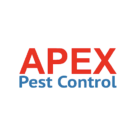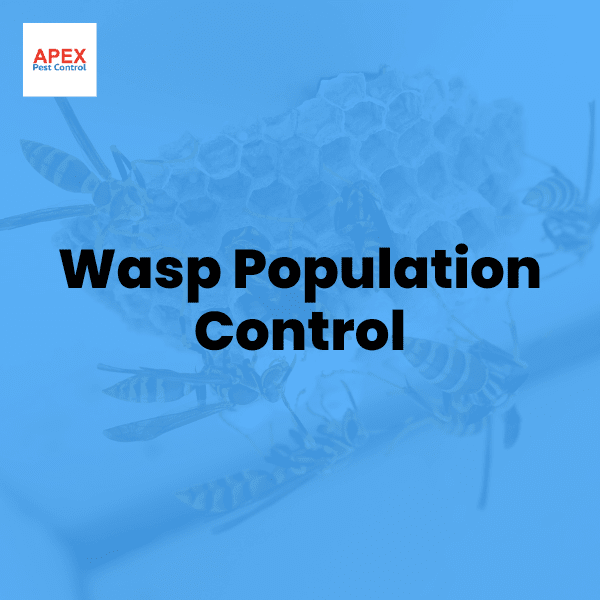The Importance of Wasp Population Control
Wasps, while often considered pests, play an integral role in our ecosystem. They contribute to natural pest control as predators of many insects that humans classify as nuisances. By eating other bugs, wasps help regulate populations that might otherwise explode without their interference.
However, the flip side of this is the negative impact a rampant wasp population can have on an environment. When not regulated or controlled themselves, wasps can disrupt outdoor activities and be potentially harmful due to their aggressive behaviour and painful stings. They may pose significant threats especially for people with allergies.
For a thorough understanding of essential tools and methods, check out our in-depth guide on safety practises for professional exterminators handling wasp removal.
Identifying a Wasp Infestation
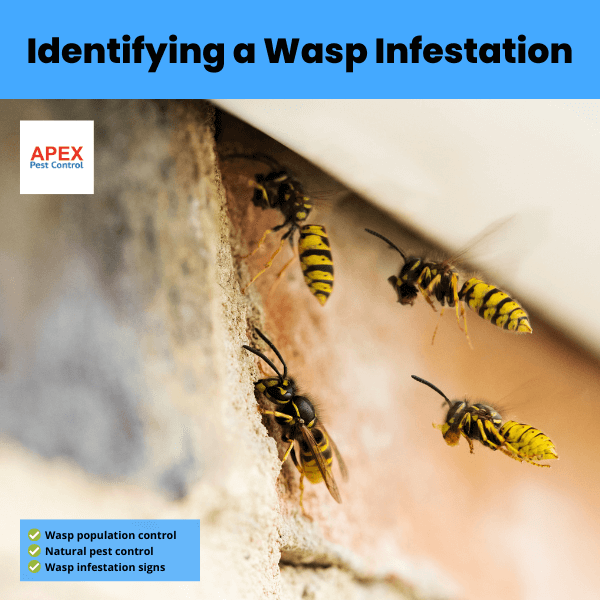
Before taking steps to control a problem, it’s important you’re dealing with wasps and not bees or other creatures crucial for pollination whose numbers are already at risk worldwide. Telltale signs of a wasp infestation include observing high activity around your home or garden or discovering nests attached to buildings or trees.
Common nesting sites are cavities in walls and roofs; behind shutters; under decking; inside bird boxes, sheds, garages – anywhere sheltered from weather elements is attractive to these critters seeking homes for their colonies.
Natural Methods for Wasp Population Control
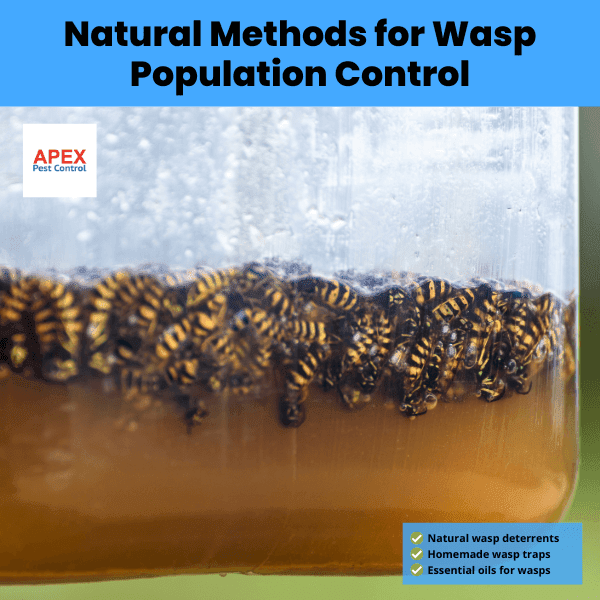
Several non-toxic methods exist which prove effective against controlling local populations if you prefer avoiding chemical solutions whenever possible. One method includes planting species known to deter them such as wormwood and eucalyptus among others reputedly distasteful for these flying pests.
Another solution comes in the form of homemade traps made out of sweetened water placed inside lidded containers where they enter but find exiting problematic.
Using natural repellents including essential oils like peppermint also provides another line of defence against unwanted visitors trying to make homes close by yours.
Professional Wasp Control Services
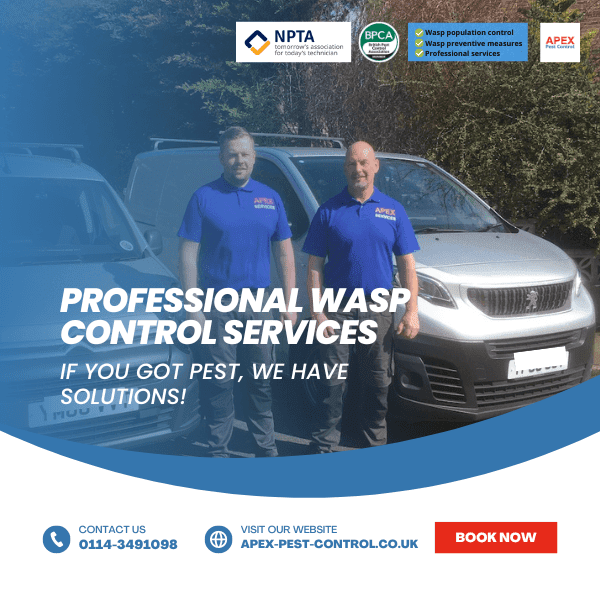
While many homeowners choose DIY strategies initially there will be times when it becomes necessary to call professionals instead – particularly large infestations possibly posing risks to yourself or your neighbours.
Professional exterminators typically conduct an initial assessment, identify the type of wasp you’re dealing with and determine the best method for removal.
The cost varies based on several factors like severity of infestation, accessibility of nest location and regional rates but remember this investment ensures safety while minimising damage to property.
Preventive Measures for Wasp Infestations

Implementing a proactive approach is crucial in preventing these insects from becoming more than an occasional annoyance. Regular inspection especially during spring when they start building nests helps spot early signs before it gets out-of-hand.
Proper waste management such as sealing bins securely is another step as this deprives them of access to food sources enticing them towards your area.
Additionally, any cracks or crevices around homes should be sealed off acting as potential entry points for those seeking shelter indoors where they might establish new colonies otherwise.
The Role of Local Communities in Wasp Control
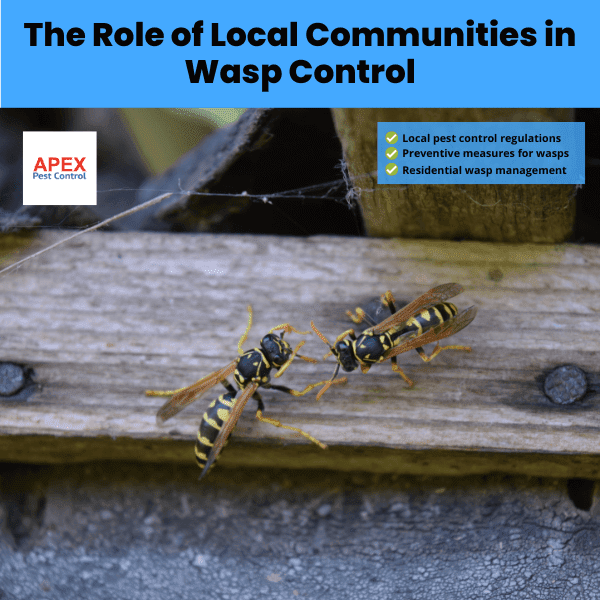
Effective control extends beyond individual efforts reaching the community level instead. Spreading awareness about correct identification and control measures educates everyone about how they can contribute effectively without causing unnecessary harm to our ecosystem.
Coordinated efforts help manage populations better by ensuring that infestations aren’t simply moving from one backyard to another but are being dealt with systematically across neighbourhoods.
Impact of Climate Change on Wasp Populations
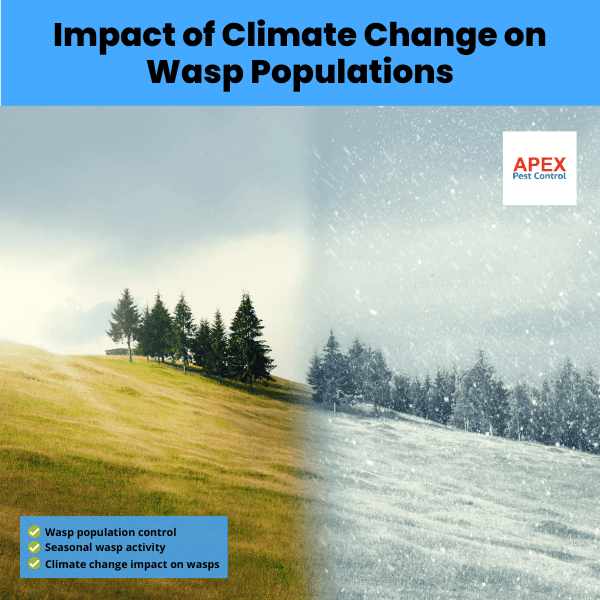
Global warming impacts all living creatures including wasps whose numbers have been seen increasing along with rising temperatures making pest control even more challenging going forward. Steps we can take include promoting environmentally friendly methods alongside reducing our carbon footprint helping slow down climate change thereby indirectly controlling their growth rate.
Summary of Key Points
Wasps play vital roles within ecosystems providing benefits like natural pest control yet unchecked populations cause problems hence why managing numbers is important.
Numerous effective techniques exist ranging from DIY solutions utilising plants, homemade traps plus natural repellents through professional services when necessary considering costs against safety concerns.
A combined effort involving both individuals and communities creates a wider safety net in controlling these pests effectively. The changing climate adds another layer of complexity, but through shared responsibility and education, we can tackle this challenge together and live harmoniously with our buzzing neighbours.
Frequently Asked Questions
What role do wasps play in the ecosystem?
Wasps serve as natural pest control agents by preying on other insects.
How can I identify a wasp infestation?
High activity around your home or garden and discovery of nests are primary indicators.
What natural methods exist for wasp population control?
Planting deterrent species, using homemade traps, and applying natural repellents help manage numbers without resorting to harsh chemicals.
When should I call professional services?
For large infestations posing risks to you or others’ safety due to potential stings it’s advisable seeking professional assistance.
How does climate change affect wasp populations?
Rising temperatures have been linked to an increase in their numbers thus adding more challenges for pest management efforts globally.

Tony Johnson, Founder & Lead Technician at Apex Pest Control, is a BPCA and NPTA accredited pest management expert with over 35 years’ hands-on experience. Tony specialises in Integrated Pest Management and ensures all services comply with UK pest legislation, including the Wildlife and Countryside Act 1981 and COSHH Regulations 2002. His commitment to continual learning and adapting to industry best practices means clients receive effective, safe solutions for pests affecting homes and businesses across South Yorkshire. Tony’s dedication to professional standards, ethical treatment methods, and local expertise has made him a trusted partner for pest control and prevention.
-
BPCA & NPTA accredited | CHAS certified
-
Committed to UK pest law compliance & safety
-
Focused on effective, ethical pest management for South Yorkshire
